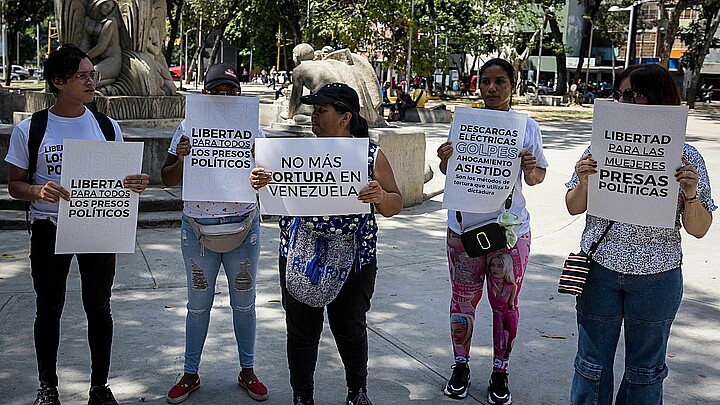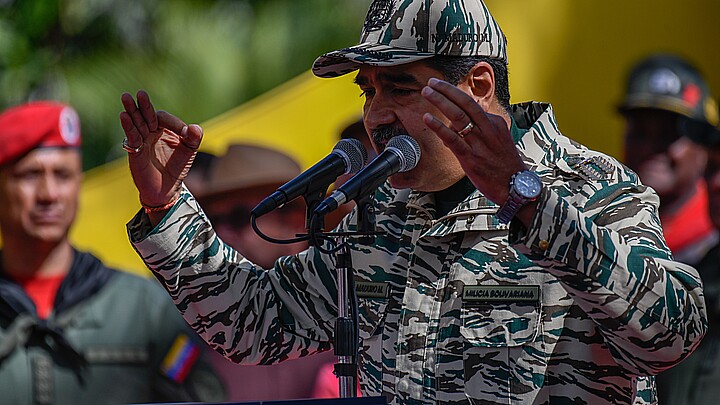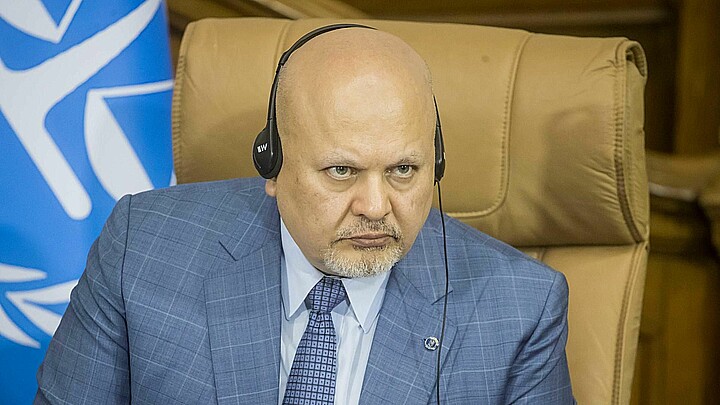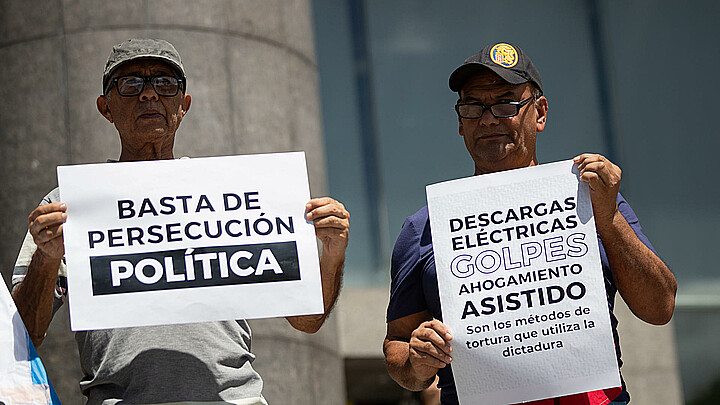Human Rights
Americans call for Los Angeles public defender wrongfully detained in Venezuela to be released, sent home
A group of Americans are coming together and calling for the release of Los Angeles Deputy Public Defender Eyvin Alexis Hernández who has been wrongfully detained by the Venezuelan Maduro regime

January 25, 2023 9:12am
Updated: February 3, 2023 8:20pm
A group of Americans are coming together and calling for the release of Los Angeles Deputy Public Defender Eyvin Hernández who the U.S. State Department has designated as wrongfully detained by the Venezuelan Maduro regime.
Hernández, a 44-year old Californian was taken into custody by Maduro’s military police in the mountains on Colombia-Venezuelan border when he and a friend purportedly, inadvertently crossed into the communist country’s territory by accident.
The Los Angeles attorney was reportedly on vacation in Colombia to beach hop to different resort destinations with a group of friends. When one of his Venezuelan friends said she needed to go to a town on the Colombia-Venezuela border to have her passport stamped, he accompanied her to Cúcuta.
Cúcuta is a small Colombian municipality in the department (state or province) of Norte de Santander.
When the two arrived by taxi they were dropped off by a dirt path which the driver directed them to walk on. The pair soon got lost and were suddenly masked men in military gear, according to an interview NBC conducted with Henry Martínez, Hernández’s brother.
“The intentions, of course, were never to cross over to Venezuela, he was just accompanying her,” Martinez told NBC. “There’s no sign that says, ‘You’re leaving Colombia’ or ‘Welcome to Venezuela.’”
According to his account, Hernández’s friend told the armed men she needed to get her passport stamped, but the men said that process had been done away there three years ago.
The soldiers then told the pair that if they wanted to cross into Venezuela, they had to pay $100.
When the pair explained they did not want to go into Venezuela, nor did they have the money to pay, they were both hooded and forced into the back of a pickup truck and subsequently kidnapped and turned over to Venezuelan officials.
Since their arbitrary arrest, Hernández has been held in a military compound known as DGCIM, an acronym in Spanish for General Directorate of Military Counterintelligence. He has been charged with criminal association and conspiracy.
His family learned of the details on Christmas when Venezuelan authorities permitted Hernández to make a WhatsApp video call to his father.
Roger Carstens, the U.S. State Department’s special envoy for hostage affairs has since visited Caracas to collect details about Hernández and other Americans imprisoned by the Maduro regime—Airan Berry, Luke Denman and Jerrel Kenemore.
The U.S. State Department has said the getting Hernández and other wrongfully detained Americans home is of the utmost priority.
“Our embassies and consulates abroad have no greater priority than the safety and security of U.S. citizens overseas,” the department said in a statement released to NBC.
“We continue to press for the immediate and unconditional release of all wrongfully detained U.S. nationals in Venezuela. The United States government will continue to work tirelessly to seek the return of all the wrongful detainees until they are home to their families where they belong.”
The Hernández case is the newest challenge for Carstens who has navigated the release of other Americans in a complex climate since the U.S. ended diplomatic relations with the Maduro regime in 2019.
Carstens is known for helping organize the October prisoner exchange of seven other Americans, including five of the Citgo 6—a group of oil executives who were charged and convicted of corruption. The sixth member was previously released months before with a Cuban-American.
Hernández was originally born in El Salvador and migrated to the U.S. when he was only three years old. Before he became a deputy public defender, he studied math and physics at UCLA and then decided to attend his university’s law school where he earned a Juris Doctor.
He became licensed as an attorney on June 1, 2006 according to the website for The State Bar of California.
Since his imprisonment, Hernández’s friends and fellow attorneys have formed a strong group of 45 to fight for his release, doing everything they can to bring awareness to his situation.
“He has had an impact in all of our lives and now we’re closely working hand in hand,” fellow deputy public defender Vianey Juarez said of Hernández.
She recently participated in a candlelight vigil with her friends at UCLA.
His brother and father are upset that the number of calls Hernández is allowed to make from prison has been reduced in recent months — from three to four times a week for about 15 minutes, to twice a week for 5 to 10 minutes.
Hernández brother reportedly told NBC he is only allowed to now call twice per week and has been kept in a small solitary confinement cell with the lights turned on 24 hours a day. They also said in his video call he appeared to be malnourished.
His family has tried to distract him from his situation during the calls with sports updates, which he used to enjoy, but lately, his father told NBC, he seems “frustrated and anxious,” and just wants to return to America.










